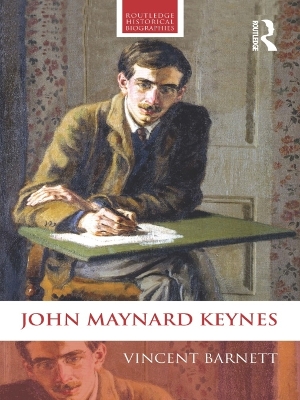Routledge Historical Biographies
2 total works
Karl Marx has been portrayed in equal measure both as a political prophet who foresaw the end of capitalist exploitation, and as a populist Anti- Christ whose totalitarian legacy has cost millions of lives worldwide. This new biography looks beyond these caricatures in order to understand more about the real Karl Marx; about his everyday life and personal circumstances as well as his political ideology.
The book tells the life story of a man of ideas, showing how his political and economic thought developed alongside his life and practical work. Vincent Barnett seeks to paint Karl Marx not as a static, unwavering character, but as a man whose beliefs developed dynamically over time. The book explores his personal background, and problems of personal income and family health. It also examines the influence of Hegel's methods on Marx's work, and his relationship with Engels.
This lively, up to date guide to the life of Karl Marx provides an excellent starting point for students in history, politics and philosophy, and for all those with an interest in Marxism and political ideas.
John Maynard Keynes is arguably the most important and influential economist of the twentieth century, and stands alongside Adam Smith and Karl Marx as one of the most famous economic thinkers of all time. Keynes’s radical reassessment of the accepted principles of economics led to new ways of thinking about how to deal with financial crises and economic depressions, and encouraged governments to increase levels of state investment to create economic growth.
This historical biography shows how Keynes was more than an academic theorist and how his policy proposals had a significant impact on the economic and financial architecture of many Western countries from the 1920s onward, and on the post-war international financial system. It also tells the story of his colourful private life - Keynes was an active member of the Bloomsbury group of artists and intellectuals, he entertained various ‘secret’ male lovers in his youth, he married a famous Russian ballerina in 1925 and he was also an astute collector of fine art and antiquarian books. Vincent Barnett emphasizes the relationship between the personal and professional by presenting the book chapters in pairs, examining first the central features of Keynes’s life, personal development and policy ideas over the period in question, and then the theoretical content of his major writings from the same period.
Barnett argues controversially that allowing psychology a much greater role within economics was a main but often-neglected feature of The General Theory of Employment, Interest and Money, and that Keynes’s policy writings were more concerned with the Britain’s national interest than is sometimes recognised. The result is a concise new biography that is both intellectually rigorous and easily accessible to students and anyone else seeking to understand the life and work of England‘s foremost economist.

